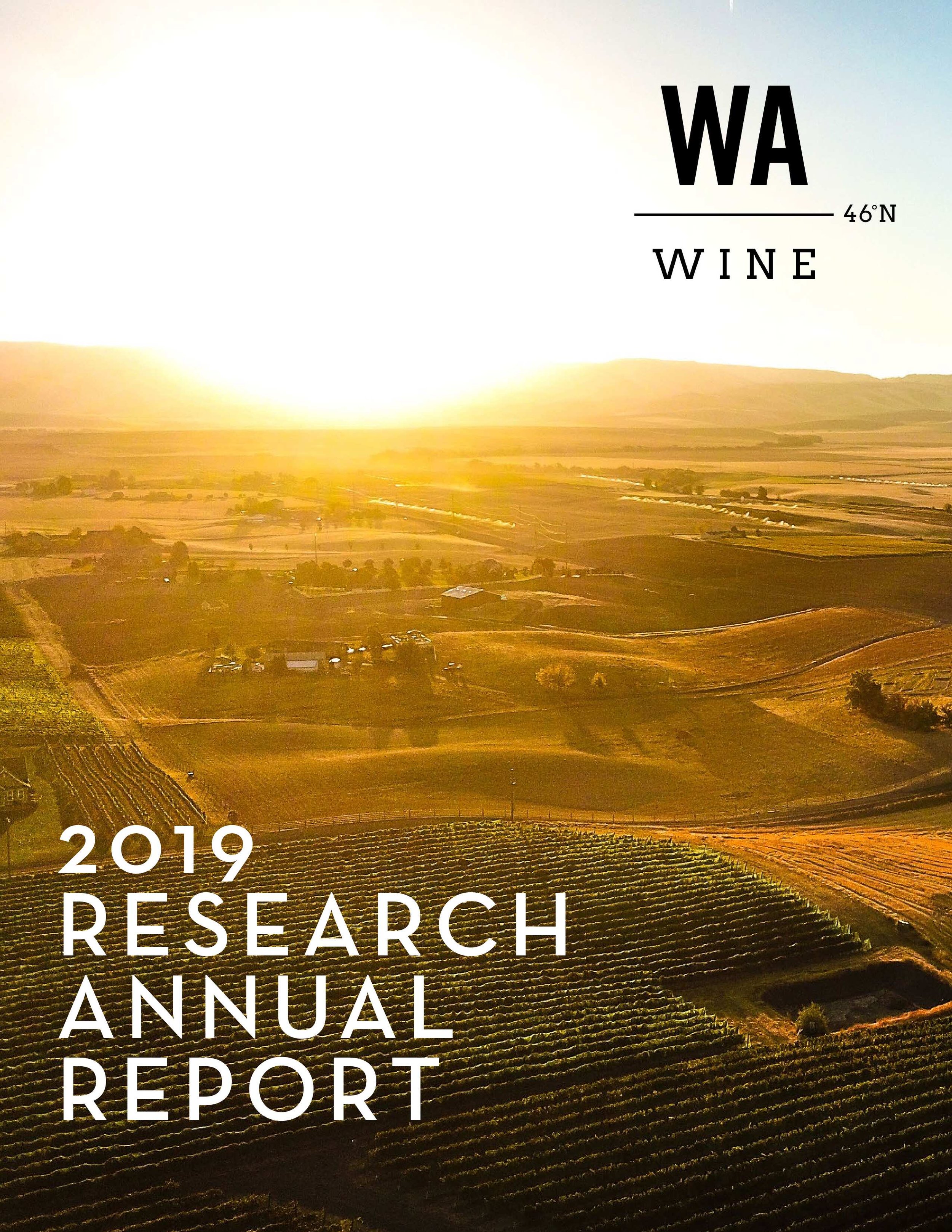2019 Washington Wine Annual Report
Dear Washington State wine industry colleagues and friends,
In just four years, Washington State Wine has more than achieved the goals set in the industry’s initial strategic research plan. The following program components ensure that it remains effective and relevant to industry needs:
Industry-Driven: Research priorities are established by growers and wineries.
Industry-Guided: Funding recommendations are approved by the industry.
Accessible to All: Winemakers and growers, regardless of size, have access to research results.
Washington’s wine research program is one of the few in the nation funded by all wine grape growers and wineries in the state. Two key committees of industry volunteers oversee and direct the research program. The Research Committee, composed of Washington State Wine Board members, has fiduciary oversight and drives the Washington State Wine research program. The Wine Research Advisory Committee (WRAC) is a subcommittee of Washington State Wine and works to keep the viticulture and enology research projects focused on needs specific to the Washington wine industry.
Washington State University is working to create a viticulture and enology degree and department by 2021, which will further help elevate viticulture and enology research and education. With the updated Strategic Research Plan approved by the Washington State Wine board in June 2019, we will launch two new research grant programs in 2020 to extend the industry’s research reach and encourage collaboration with other wine regions. This targeted focus on research is to help the Washington wine industry grow better grapes and make better wine by providing data-driven tools for both growers and winemakers. We look forward to building a world-class research program at WSU that attracts the best and brightest scientists, increases collaboration among researchers and universities, and leverages industry funds to achieve outside grant awards.
Research is an integral part of the Washington wine industry, playing an essential role in moving it forward. Please reach out to us if you have any questions, thoughts, or if you would like to be more involved in wine and grape research in Washington.
Cheers,
Steve Warner
President and CEO
Melissa Hansen
Research Program Director
RESEARCH PROJECTS FUNDED IN 2019-2020
Viticulture (14 Total Projects)
Develop grapevine virus management strategies
Monitor grape mealybug (insect that transmits grape leafroll virus) for potential resistance and buffalo treehoppers (red blotch virus vector) for susceptibility of imidicloprid
Identify factors behind recent spider mite outbreaks
Survey for newly detected leafroller in Washington vineyards
Develop strategies to manage plant parasitic nematodes
Monitor and map grape powdery mildew fungicide resistance
Identify temperature thresholds for climate variability on grapevine phenology
Develop smartphone app for crop load estimation
Develop machine vision system for precise mechanical shoot thinner
Develop economic benchmarks for mechanization to help growers make mechanization decisions
Optimize the impact of mycorrhizal inoculations on soil health and grapevine growth
Dissect the importance of grape variety versus environment for irrigation management
Understand impacts on fruit ripening and acidity from the double whammy of heat stress and water deficit to develop recommendations to mitigate heat stress effects
Research vineyard maintenance support
Enology (7 Total Projects)
Develop winery management and sanitation practices for control of wine spoilage
Assess smoke taint risk in berries and resulting wine
Manage phenolic compounds in the vineyard and winery to improve wine quality (grape ripening/maturity and mechanical pruning impacts on wine quality; develop tannin model system for wineries)
Understand the impact of pH on wine microbial ecology and wine quality
Understand sensory characteristics and consumer acceptance of WA wines
Evaluate Cabernet Sauvignon grapes exposed to freeze and potential wine quality impact
Research winemaking support

